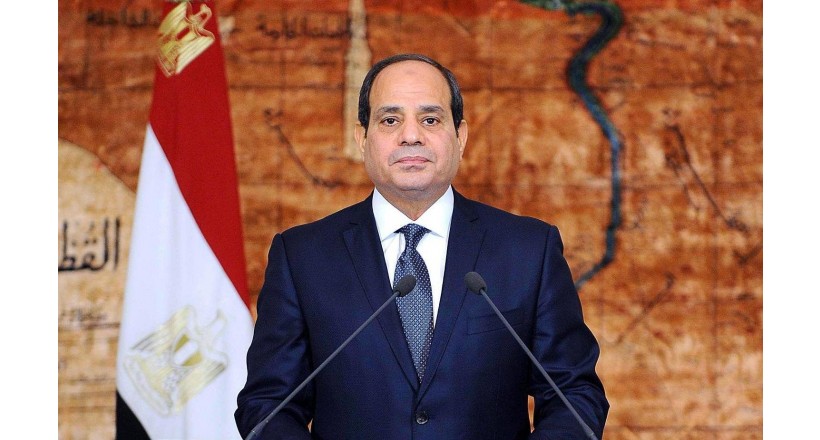Abdel Fattah Saeed Hussein Khalil Al-Sisi (November 19, 1954), is the sixth and current President of the Arab Republic of Egypt, and the Supreme Commander of the Egyptian Armed Forces. He was Director of Military Intelligence in 2010 AD, then he was promoted to the position of Minister of Defense to succeed Field Marshal Muhammad Hussein Tantawi on August 12, 2012 AD. He was elected in 2012. 2014 for a period of 4 years after his success in the 2014 presidential elections, after his overthrow of President Mohamed Morsi on July 3, 2013 (the first elected civilian president after the January 25 revolution) a year after he assumed the reins of power following demonstrations calling for his departure, and he announced accompanying measures known as the road map Supporters of President Mohamed Morsi at the time opposed it and considered it - along with part of the international and Arab community - a military coup, while the demonstrators and opponents of President Mohamed Morsi at the time supported it and considered it a revolution and support for popular demands. He graduated from the Military Academy in 1977, served in the infantry, and was appointed commander of the Northern Military Region. He assumed the position of Director of the Military Intelligence and Reconnaissance Department. He then held the position of Commander-in-Chief of the Egyptian Armed Forces and the 44th Minister of Defense from August 12, 2012 until his resignation on March 26, 2014 to run for the presidency. He was sworn in for his first four-year presidential term before the Constitutional Court on June 8, 2014, while he was sworn in for his second term before the House of Representatives on June 2, 2018. He described his regime as authoritarian. Analysts, especially in Western sources, do not consider Egypt under Sisi a democratic state, citing the imprisonment of political opponents, the curtailment of press freedom, and the lack of free elections. Human rights organizations such as Human Rights Watch have accused security forces under his rule of abuses such as the use of torture, enforced disappearance, and imprisonment of opponents. And their relatives, while Al-Sisi denied these accusations and called for “beware of information published by human rights organizations.” In the 2018 presidential elections, Sisi faced only nominal opposition following the military detention of Sami Anan and subsequent enforced disappearance, the withdrawal of Ahmed Shafiq after being threatened with old corruption charges according to one of his lawyers, and the withdrawal of the rest of the candidates due to obstacles and alleged violations by the election commission. On the other hand, Al-Sisi considered that Western democracy is not suitable for the Middle East except in the long term. Because of conflicts and obstacles to education and poverty. Under Sisi, Egypt began a successful economic reform program, which helped make the Egyptian economy the fastest growing in the Middle East by 2019. However, the proportion of the poor continued to rise due to austerity measures and the Corona crisis, and this was met by measures to strengthen social protection networks. Al-Sisi was criticized for increasing the role of the army in the economy, but he replied that this role does not exceed 2 percent of the GDP, and denied that it is at the expense of the private sector. The capabilities of the armed forces have also grown under Sisi, and Egypt became the third largest importer of arms globally in the 2015-19 period.
Welcome to Try Collect




